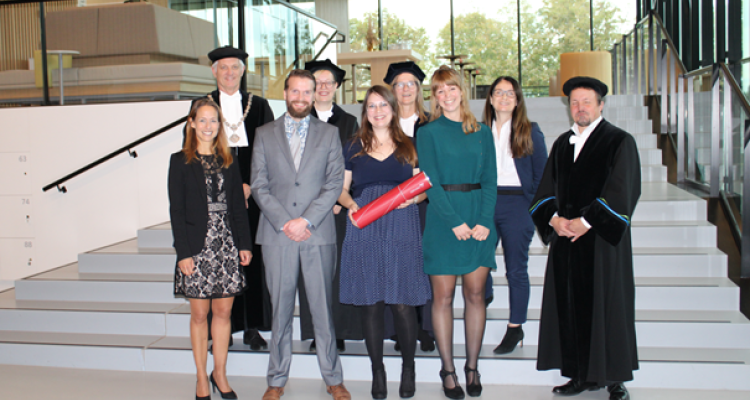
News
New Doctor: Marijke Veugen
In secondary education in the Netherlands many forms of assessment are in summative ways at the end of the learning process, such as tests for grades. Formative assessment has the aim to follow student learning and to adapt teaching and learning to the students’ needs during learning, so learning could be improved.
Using formative assessment in the classroom is something many teachers wish to do, but are not doing yet. Around one hundred secondary school teachers of thirteen different schools in the Netherlands participated in a learning network to professionalise in how to use formative assessment in the classroom. The formative assessment cycle was used as a framework to help teachers implement formative assessment strategies. This framework describes the formative assessment process in five phases: (1) Clarifying expectations in learning goals and success criteria; (2) Eliciting student responses to collect information about the learning process; (3) Analysing and interpreting these responses; (4) Communicating with students about the responses, (5) and Adapting teaching and learning by taking follow-up actions. We researched how teachers implemented these five phases in their daily teaching and how students were involved.
This was done in four studies. The first study focused on mapping teacher and student perceptions of formative assessment practice within the five phases of the formative assessment cycle. This quantitative questionnaire study showed that teachers and students have overlapping perceptions and that they both notice many formative assessment practices happening in the classroom. In the second study was researched how the formative assessment practices of the teachers differed from each other. In this mixed methods study was found that teachers could be divided into three teacher profiles: not so frequent, average and frequent formative assessment users. We also noticed that teachers develop their formative assessment practice from a teacher focus towards more student focused. In the third study was qualitatively researched how teachers regulated the formative assessment process with their students and thus co-regulated learning in this process. Findings indicated that teachers are able to implement such co-regulated practices with students and that they differ in how they do this. The last study was done in times of Covid-19 and provided the opportunity to research how teachers adapted formative assessment practice to online education. Results showed that teachers use many opportunities of using formative assessment online, such as providing more feedback and stimulating students to do self- and peer assessment.
While the project ended after five years, the issue of implementing formative assessment in teaching practices remains an important topic in education. Also in higher education formative assessment takes a more prominent place every day. If you have questions regarding the research or wish to read more in the dissertation, please send an email to marijke.veugen@wur.nl.